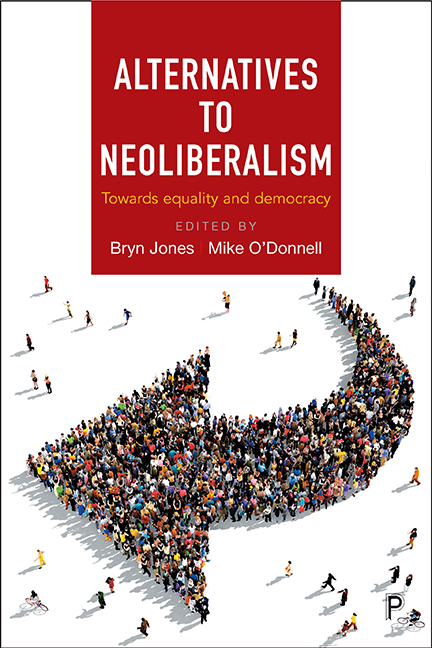Book contents
- Frontmatter
- Dedication
- Contents
- List of figures, tables and boxes
- List of abbreviations
- Notes on contributors
- Acknowledgements
- Foreword
- Editors’ preface
- Introduction: The open-market society and its opponents: an overview
- Part One Alternative paradigms and perspectives
- Part Two Reform within economic and governance restraints: pushing the boundaries
- Part Three Economic and political democracy: restoring the market-civil society balance
- Conclusion: A Brexit from neoliberalism?
- Index
Part Three - Economic and political democracy: restoring the market-civil society balance
Published online by Cambridge University Press: 05 April 2022
- Frontmatter
- Dedication
- Contents
- List of figures, tables and boxes
- List of abbreviations
- Notes on contributors
- Acknowledgements
- Foreword
- Editors’ preface
- Introduction: The open-market society and its opponents: an overview
- Part One Alternative paradigms and perspectives
- Part Two Reform within economic and governance restraints: pushing the boundaries
- Part Three Economic and political democracy: restoring the market-civil society balance
- Conclusion: A Brexit from neoliberalism?
- Index
Summary
In Part One our contributors have set out some broad themes that would break with neoliberal discourse and provide broad perspectives for movements and policies for change. To recap, these were: a platform of democratisation by O’Donnell; new or updated modes of collectivism by Gilbert; integration of lifeworld relations and environmental priorities by Coote and Benton; articulated, according to Coote in a new social settlement. Some of these perspectives were related to current fluctuations in structures of power and social context in the Part Two chapters by Farnsworth and Irving, and the Jones and O’Donnell chapter on the European Union. Thompson showed that there are some, though limited, shifts in the economic policy making within which progressive reforms may have to work. Both Jones and Johal, Moran and Williams identified specific changes that could make businesses and local economic institutions more accountable to civil society and local government criteria for socioeconomic amelioration. This final part of the book links the Part One perspectives to the Part Two institutional analyses by examining a number of fields of favourable political action.
Crouch begins these analyses by setting out the case for a revitalised form of social democracy in which the needs and interests of women are the ‘motors’ of change in a way that is analogous to that of trade unions and labour organisations in classical social democracy. Citing lifeworld aspects, such as the work‒life balance and the gendered division of domestic labour, Crouch argues that a revamped and revitalised social democratic state could be the best mechanism for improving these popular concerns. The trends and projections which Crouch identifies, complement and ‘materialise’ the principles of ‘natural’ wellbeing for which Coote and Benton argued in Part One. Jones and Mike O’Donnell pursue this focus on social justice and change agents by identifying the analogous concerns in the evolution of social movements. They argue that, as well as often making explicit criticisms of neoliberalism, many of these campaigners and their organisations could play similar roles to those previously taken by labour movement organisations as advocates and facilitators of classical social democracy ‒ a role for which their emphasis on more direct democracy in socioeconomic governance would render them especially relevant.
- Type
- Chapter
- Information
- Alternatives to NeoliberalismTowards Equality and Democracy, pp. 193 - 194Publisher: Bristol University PressPrint publication year: 2017



